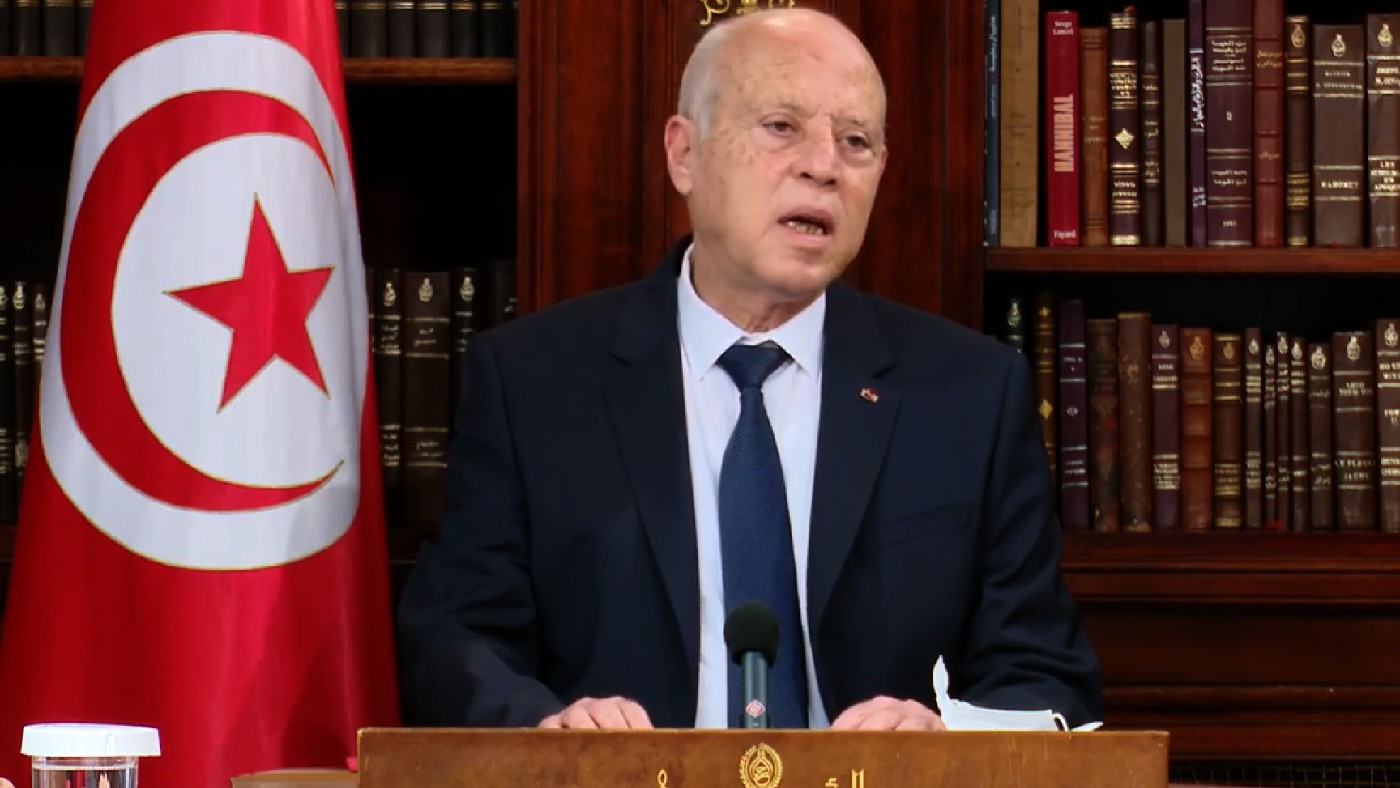Crackdown in Tunisia: the death of a young democracy?
President Kais Saied’s seizing of power suggests he plans to ‘eliminate any oversight and all obstacles to his rule’

A free daily email with the biggest news stories of the day – and the best features from TheWeek.com
You are now subscribed
Your newsletter sign-up was successful
They may have been cheered on by millions – but there’s no doubt that the events that unfolded in Tunisia on 25 July amounted to a “coup d’état”, said Nizar Bahloul in Business News (Tunis).
After widespread anti-government protests over Tunisia’s chaotic pandemic response and its shrinking economy, President Kais Saied invoked emergency powers under Article 80 of the constitution: the prime minister, Hichem Mechichi, was sacked; parliament was suspended and ringed by military vehicles.
Saied, who was elected two years ago on an anti-establishment platform, then furthered the appearance of a coup by firing two ministers and lengthening an existing curfew. Public gatherings of more than three people were banned, and security forces raided the offices of Qatar-funded TV channel Al Jazeera. The upshot? “We are facing the real and immediate death of our young democracy.”
The Week
Escape your echo chamber. Get the facts behind the news, plus analysis from multiple perspectives.

Sign up for The Week's Free Newsletters
From our morning news briefing to a weekly Good News Newsletter, get the best of The Week delivered directly to your inbox.
From our morning news briefing to a weekly Good News Newsletter, get the best of The Week delivered directly to your inbox.
Tunisia was once “the cradle of the Arab Spring”, said Tallha Abdulrazaq on TRT World (Istanbul). When protesters toppled the country’s dictatorship in 2011, it set off an “unstoppable wave” of fury against “corrupt, violent and oppressive rulers” in nations throughout the Arab world. Yet ten years on, Tunisia was the only one of those countries where genuine democracy had survived.
Unfortunately, instead of the freedom and prosperity they were promised, Tunisians have endured years of “economic crisis” and “political paralysis”, said Nathalie Tocci in La Stampa (Turin). To make matters worse, the health service has buckled under the impact of Covid: 20,000 people have died, out of a population of 12 million, and to date a mere 8% have been fully vaccinated.
Thousands of Tunisians poured into the streets to cheer Saied’s suspension of parliament, where the moderate Islamists of the Ennahda party hold the most seats, said Al-Bayan (Dubai). Car horns honked, fireworks exploded and crowds chanted jubilantly.
But I doubt the celebratory mood will last long, said Marwan Bishara on Al Jazeera (Doha). Saied’s cynical use of the constitution to seize power, and his praise for Egypt’s dictatorship, suggests he plans to “eliminate any oversight and all obstacles to his rule” in the coming months.
A free daily email with the biggest news stories of the day – and the best features from TheWeek.com
The autocratic leaders of Egypt, Saudi Arabia and the United Arab Emirates have more to celebrate, said Claire Parker in The Washington Post. They never wanted the Arab Spring – or the Muslim Brotherhood-linked Ennahda – to succeed. State media there have triumphantly hailed the events in Tunisia as “the death knell for political Islam in democracy”.
-
 The environmental cost of GLP-1s
The environmental cost of GLP-1sThe explainer Producing the drugs is a dirty process
-
 Greenland’s capital becomes ground zero for the country’s diplomatic straits
Greenland’s capital becomes ground zero for the country’s diplomatic straitsIN THE SPOTLIGHT A flurry of new consular activity in Nuuk shows how important Greenland has become to Europeans’ anxiety about American imperialism
-
 ‘This is something that happens all too often’
‘This is something that happens all too often’Instant Opinion Opinion, comment and editorials of the day
-
 How corrupt is the UK?
How corrupt is the UK?The Explainer Decline in standards ‘risks becoming a defining feature of our political culture’ as Britain falls to lowest ever score on global index
-
 Democrats push for ICE accountability
Democrats push for ICE accountabilityFeature U.S. citizens shot and violently detained by immigration agents testify at Capitol Hill hearing
-
 Fulton County: A dress rehearsal for election theft?
Fulton County: A dress rehearsal for election theft?Feature Director of National Intelligence Tulsi Gabbard is Trump's de facto ‘voter fraud’ czar
-
 ‘Melania’: A film about nothing
‘Melania’: A film about nothingFeature Not telling all
-
 Greenland: The lasting damage of Trump’s tantrum
Greenland: The lasting damage of Trump’s tantrumFeature His desire for Greenland has seemingly faded away
-
 Minneapolis: The power of a boy’s photo
Minneapolis: The power of a boy’s photoFeature An image of Liam Conejo Ramos being detained lit up social media
-
 The price of forgiveness
The price of forgivenessFeature Trump’s unprecedented use of pardons has turned clemency into a big business.
-
 Reforming the House of Lords
Reforming the House of LordsThe Explainer Keir Starmer’s government regards reform of the House of Lords as ‘long overdue and essential’